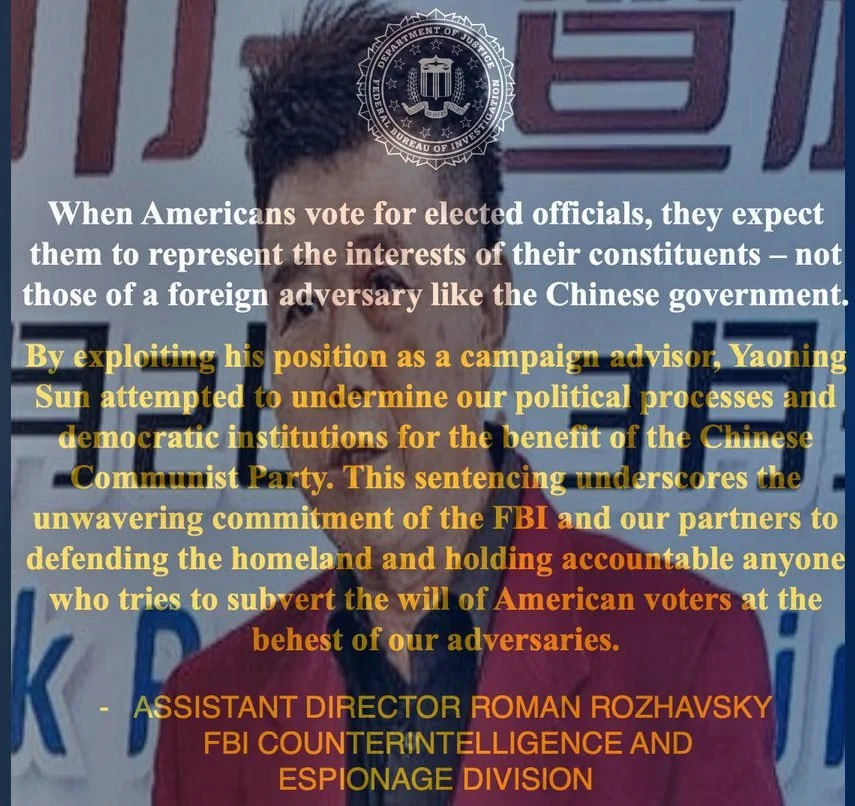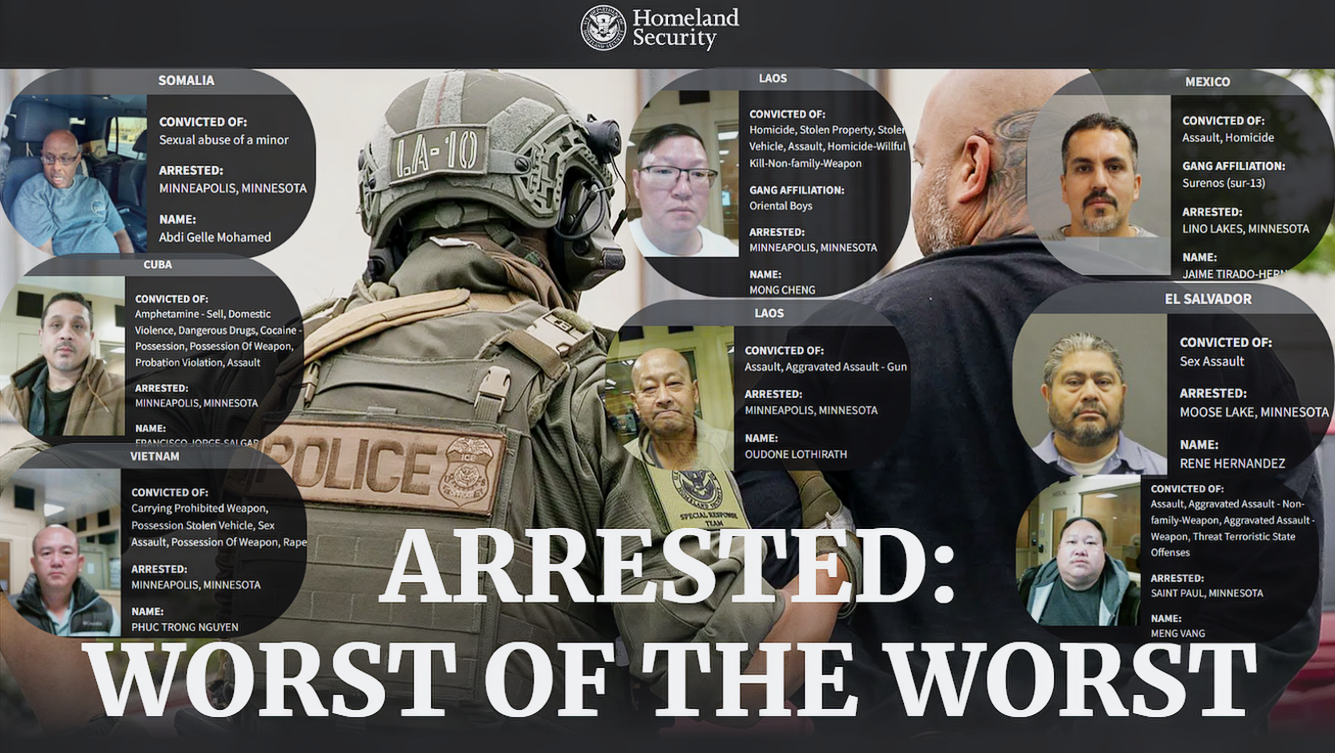Report Exposes How the Chinese Communist Party Exploits U.S. Universities
By The Blog Source
The Chinese Communist Party (CCP) uses American institutions to support its military and scientific advancements, according to two years of investigations conducted by the Committee on Education and the Workforce (Committees) and the Select Committee on the Chinese Communist Party.
The Committees published a report last fall called CCP on the Quad, which detailed how American researchers, many of whom were supported by the National Science Foundation, Department of Defense (DOD), and Department of Energy, made major contributions to nuclear technology, artificial intelligence, robotics, and quantum computing that were made possible by the People's Republic of China (PRC). U.S.-PRC joint institutes enhance technology transfer and present national security vulnerabilities, according to the research.
This study includes fresh information on university reactions, increased enforcement of foreign gift disclosure laws, and new discoveries on joint institutes and other problematic partnerships between U.S. colleges and the PRC.
Joint Institutes, which are Chinese-based organizations that connect American and Chinese colleges, are not your average academic partnerships that help students from both nations. The CCP controls them. They follow PRC legislation, are governed by boards with a majority of Chinese people and Party members in charge, and support the CCP's national plan, which includes its military buildup. These cooperative institutes are primarily funded by the Chinese government, and their use is legally limited to supporting CCP objectives. Curriculum and research prioritize CCP-defined objectives, especially in science and technology domains that have military applications. Last but not least, American universities consent to PRC-imposed restrictions on free speech, academic freedom, and independent government.
Eight universities decided that closing their collaborative institutes with Chinese partners was the proper thing to do for academic freedom and U.S. national security in the face of damaging findings like this one. These institutions include the University of Illinois, the University of Michigan, the University of Pittsburgh, Oakland University, the University of Detroit Mercy, the University of California, Berkeley, Georgia Institute of Technology, and the University of Michigan.
Many others, however, have not. Duke University, the University of Arizona, the University of Delaware, Drake University, the University of Houston, Kean University, the University of Miami, New York University, the University of North Alabama, Northeastern State University (Tahlequah), Portland State University, the State University of New York - Stony Brook, and Trine University are among the universities where the Committees identified high-risk joint institutes last fall, but none of them have taken any action.
These collaborative institutes are by no means the only partnerships between Chinese organizations and American colleges that pose threats to national security. Over a hundred such academic collaborations with PRC enterprises that present a national security concern were found by the Committees in the follow-up inquiry.
The national security risk indicators and descriptions of over fifty such partnerships are provided below. Among these collaborations are three collaborative degree programs between Seven Sons of National Defense in China and American universities. The CCP personally selected the Seven Sons of National Defense universities to advance China's military and defense studies.
— A dual degree in aircraft power engineering between Southern Illinois University Carbondale and Shenyang Aerospace University, overseen by the Aviation Industry Corporation of China, a blacklisted Chinese military company that developed China's 5th Generation Stealth Fighter;
— A partnership in submarine engineering research between the University of Houston and Dalian Maritime University, which is overseen by a Chinese defense-focused government agency and collaborates with Chinese defense conglomerates on engineering research;
— North China Institute of Aerospace Engineering, a university under the supervision of banned Chinese military enterprises that manufacture China's Long March Rockets and other missiles, and Saint Martin's University in Washington state are collaborating on a mechanical design, manufacturing, and automation program.
These collaborations have to stop!
The current Trump Administration has taken important actions to strengthen enforcement of the foreign contract and gift requirements in existing law under section 117 of the Higher Education Act (HEA), following years of inaction by the Biden-Harris administration. Although there are still significant gaps, institutions that collaborate with joint institutes have made substantial progress in improving disclosures.
Thus, Tim Walberg, chairman of the Education and Workforce Committee, and John Moolenaar, chairman of the Select Committee, suggest enacting the Securing American Funding and Expertise from Adversarial Research Exploitation Act of 2025 (SAFE Research Act), which says:
—Federal financing for STEM (science, technology, engineering, and mathematics) research is prohibited for researchers who work with foreign adversary-controlled organizations that are a threat to national security.
– Prevents universities from receiving DOD funds if they collaborate with foreign adversary-controlled organizations that represent a threat to national security.
— Demands more detailed information about foreign adversary affiliations, travel, and collaborations.
On September 10, 2025, the House passed the Fiscal Year 2026 National Defense Authorization Act (FY26 NDAA), which included the SAFE Research Act as an amendment. Working quickly to advance this bill and make it law is something we look forward to.
Furthermore, declarations of foreign gifts are still insufficient. We still need laws like H.R. 1048, the Defending Education Transparency and Ending Rogue Regimes Engaging in Nefarious Transactions (DETERRENT) Act, because the current law is not enforced well and universities don't report enough. The House approved the DETERRENT Act on March 27, 2025, by a vote of 241 to 169. The Senate has yet to take any action on it. The Chairmen are still pleading with the Senate to swiftly enact the DETERRENT Act.
To join the Diamond and Silk Monthly Supporter Program, visit http://SupportDiamondandSilk.com.
Lindell TV, VOCL, ChatDit, Rumble, TruthSocial, and Diamond and Silk Media are all excellent ways to stay connected with Diamond and Silk.







































